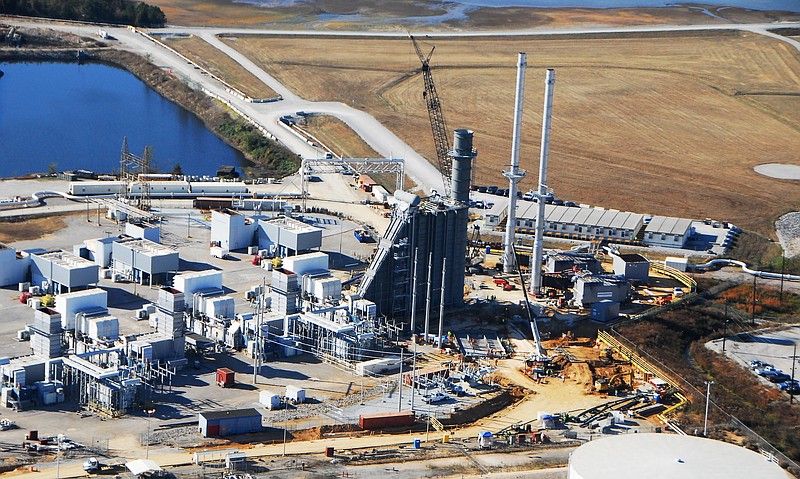The Tennessee Valley Authority plans to shutter its oldest coal plant in New Johnsonville, Tenn., at the end of next year, but the federal utility will continue to provide the steam for an adjacent chemical plant as part of a unique co-generation partnership to preserve 1,100 jobs in Middle Tennessee.
TVA is building a multi-million-dollar heat- recovery steam generator on its newest combustion turbine generator at the 720-acre Johnsonville plant, which TVA previously used only during periods of peak demand. To help keep enough steam flowing for Chemours to make its titanium dioxide product, engineers from TVA and Chemours worked out a system for TVA to regularly use its newest combustion turbine at New Johnsonville to not only generate electricity but to also make steam for Chemours' manufacturing process.
Chemours, which Dupont spun off in October 2013 into a separate publicly traded company focused on performance chemicals, has relied upon steam from TVA's Johnsonville Fossil Plant for the past two decades to make about 25 percent of America's supply of titanium dioxide.
The chemical is used to add white pigment to everything from toothpaste to cars.
But to comply with stricter clean air requirements, TVA agreed to shut down the last of the 10 coal-fired generators at Johnsonville by the end of 2017, cutting off the regular steam supply Chemours relied upon under TVA's biggest co-generation project in its seven-state region. By the end of 2017, TVA will have shut down 24 of the 59 coal-fired power plants it once operated in order to help clear the air and reduce carbon emissions in the Tennessee Valley.
When TVA agreed to a consent order with federal environmental regulators in 2011, Chemours said it wanted to keep operating in Tennessee but needed another source of steam for its Johnsonville plant.
"If they left altogether, that would have been an economic disaster," said J.T. Long, TVA's industrial account manager who worked to keep Chemours open in Tennessee. "With 1,100 jobs, they are the largest employer in Humphreys County and one of the largest industrial employers in the Valley. They generate over $100 million per year in direct and indirect payroll."
The ultimate solution for Chemours ended up coming from another nearby TVA asset: the 20-unit Johnsonville Combustion Turbine plant. Most of the site was developed in the 1970s, with the majority of the turbines being older, smaller 50-megawatt units. However, the last three units built were big enough to produce enough steam for the titaniam dioxide production.
"They're big GE 7EA units, which run 85 to 100 megawatts - large enough to produce steam for Chemours next door," said Chris Jenkins, principal project manager on the Johnsonville CT project. "Unit 20 is probably located no more than 100 feet away from Chemours' property."
TVA spokesman Scott Brooks said Monday the financial details of the arrangement between TVA and Chemours are proprietary and would not be released. But Brooks said while details are confidential, "this project isn't costing ratepayers anything."
Normally, combustion turbines generate power at much higher costs than other generators and are used only during high demand periods. Combustion turbines are relatively inexpensive to build and can be quickly activated to meet short-term power demands.
But the newest combustion turbines, which are fueled by natural gas, are more efficient and the sale of the steam to Chemours helps offset the higher operating costs for the units.
"Control rooms between TVA and Chemours will be communicating daily to support production and planning," Jenkins said. "That constant communication will make certain we are prepared to meet their needs."
Long said the partnership also has environmental advantages.
"With cogeneration, you're taking one input and creating two outputs," Long said. "In typical simple-cycle gas turbines, the thermal heat from the exhaust is lost to the atmosphere, but here we're capturing it to create steam."
Johnsonville is the oldest fossil plant in the TVA fleet and began operation in 1949. By next year, Johnsonville will be TVA's first co-generation site of its kind.
"Obviously we're pleased that we could work with TVA in identifying a solution that maintains the long-standing relationship we share in Humphreys County," Chemours Johnsonville plant manager Greg Martz said in a statement.
